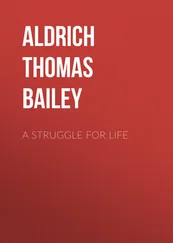Чарльз Дарвин - The Origin of Species by Means of Natural Selection Or, the Preservation of Favoured Races in the Struggle for Life
Здесь есть возможность читать онлайн «Чарльз Дарвин - The Origin of Species by Means of Natural Selection Or, the Preservation of Favoured Races in the Struggle for Life» весь текст электронной книги совершенно бесплатно (целиком полную версию без сокращений). В некоторых случаях можно слушать аудио, скачать через торрент в формате fb2 и присутствует краткое содержание. Год выпуска: 1999, Жанр: Биология, на английском языке. Описание произведения, (предисловие) а так же отзывы посетителей доступны на портале библиотеки ЛибКат.
- Название:The Origin of Species by Means of Natural Selection Or, the Preservation of Favoured Races in the Struggle for Life
- Автор:
- Жанр:
- Год:1999
- ISBN:нет данных
- Рейтинг книги:3 / 5. Голосов: 1
-
Избранное:Добавить в избранное
- Отзывы:
-
Ваша оценка:
- 60
- 1
- 2
- 3
- 4
- 5
The Origin of Species by Means of Natural Selection Or, the Preservation of Favoured Races in the Struggle for Life: краткое содержание, описание и аннотация
Предлагаем к чтению аннотацию, описание, краткое содержание или предисловие (зависит от того, что написал сам автор книги «The Origin of Species by Means of Natural Selection Or, the Preservation of Favoured Races in the Struggle for Life»). Если вы не нашли необходимую информацию о книге — напишите в комментариях, мы постараемся отыскать её.
The Origin of Species by Means of Natural Selection Or, the Preservation of Favoured Races in the Struggle for Life — читать онлайн бесплатно полную книгу (весь текст) целиком
Ниже представлен текст книги, разбитый по страницам. Система сохранения места последней прочитанной страницы, позволяет с удобством читать онлайн бесплатно книгу «The Origin of Species by Means of Natural Selection Or, the Preservation of Favoured Races in the Struggle for Life», без необходимости каждый раз заново искать на чём Вы остановились. Поставьте закладку, и сможете в любой момент перейти на страницу, на которой закончили чтение.
Интервал:
Закладка:
As a record of a former state of things, I have retained in the foregoing paragraphs, and elsewhere, several sentences which imply that naturalists believe in the separate creation of each species; and I have been much censured for having thus expressed myself. But undoubtedly this was the general belief when the first edition of the present work appeared. I formerly spoke to very many naturalists on the subject of evolution, and never once met with any sympathetic agreement. It is probable that some did then believe in evolution, but they were either silent or expressed themselves so ambiguously that it was not easy to understand their meaning. Now, things are wholly changed, and almost every naturalist admits the great principle of evolution. There are, however, some who still think that species have suddenly given birth, through quite unexplained means, to new and totally different forms. But, as I have attempted to show, weighty evidence can be opposed to the admission of great and abrupt modifications. Under a scientific point of view, and as leading to further investigation, but little advantage is gained by believing that new forms are suddenly developed in an inexplicable manner from old and widely different forms, over the old belief in the creation of species from the dust of the earth.
It may be asked how far I extend the doctrine of the modification of species. The question is difficult to answer, because the more distinct the forms are which we consider, by so much the arguments in favour of community of descent become fewer in number and less in force. But some arguments of the greatest weight extend very far. All the members of whole classes are connected together by a chain of affinities, and all can be classed on the same principle, in groups subordinate to groups. Fossil remains sometimes tend to fill up very wide intervals between existing orders.
Organs in a rudimentary condition plainly show that an early progenitor had the organ in a fully developed condition, and this in some cases implies an enormous amount of modification in the descendants. Throughout whole classes various structures are formed on the same pattern, and at a very early age the embryos closely resemble each other. Therefore I cannot doubt that the theory of descent with modification embraces all the members of the same great class or kingdom. I believe that animals are descended from at most only four or five progenitors, and plants from an equal or lesser number.
Analogy would lead me one step further, namely, to the belief that all animals and plants are descended from some one prototype. But analogy may be a deceitful guide. Nevertheless all living things have much in common, in their chemical composition, their cellular structure, their laws of growth, and their liability to injurious influences. We see this even in so trifling a fact as that the same poison often similarly affects plants and animals; or that the poison secreted by the gall-fly produces monstrous growths on the wild rose or oak-tree. With all organic beings, excepting perhaps some of the very lowest, sexual reproduction seems to be essentially similar. With all, as far as is at present known, the germinal vesicle is the same; so that all organisms start from a common origin. If we look even to the two main divisions—namely, to the animal and vegetable kingdoms—certain low forms are so far intermediate in character that naturalists have disputed to which kingdom they should be referred. As Professor Asa Gray has remarked, "the spores and other reproductive bodies of many of the lower algae may claim to have first a characteristically animal, and then an unequivocally vegetable existence." Therefore, on the principle of natural selection with divergence of character, it does not seem incredible that, from some such low and intermediate form, both animals and plants may have been developed; and, if we admit this, we must likewise admit that all the organic beings which have ever lived on this earth may be descended from some one primordial form. But this inference is chiefly grounded on analogy, and it is immaterial whether or not it be accepted. No doubt it is possible, as Mr. G.H. Lewes has urged, that at the first commencement of life many different forms were evolved; but if so, we may conclude that only a very few have left modified descendants. For, as I have recently remarked in regard to the members of each great kingdom, such as the Vertebrata, Articulata, etc., we have distinct evidence in their embryological, homologous, and rudimentary structures, that within each kingdom all the members are descended from a single progenitor.
When the views advanced by me in this volume, and by Mr. Wallace or when analogous views on the origin of species are generally admitted, we can dimly foresee that there will be a considerable revolution in natural history. Systematists will be able to pursue their labours as at present; but they will not be incessantly haunted by the shadowy doubt whether this or that form be a true species. This, I feel sure and I speak after experience, will be no slight relief. The endless disputes whether or not some fifty species of British brambles are good species will cease. Systematists will have only to decide (not that this will be easy) whether any form be sufficiently constant and distinct from other forms, to be capable of definition; and if definable, whether the differences be sufficiently important to deserve a specific name. This latter point will become a far more essential consideration than it is at present; for differences, however slight, between any two forms, if not blended by intermediate gradations, are looked at by most naturalists as sufficient to raise both forms to the rank of species.
Hereafter we shall be compelled to acknowledge that the only distinction between species and well-marked varieties is, that the latter are known, or believed to be connected at the present day by intermediate gradations, whereas species were formerly thus connected. Hence, without rejecting the consideration of the present existence of intermediate gradations between any two forms, we shall be led to weigh more carefully and to value higher the actual amount of difference between them. It is quite possible that forms now generally acknowledged to be merely varieties may hereafter be thought worthy of specific names; and in this case scientific and common language will come into accordance. In short, we shall have to treat species in the same manner as those naturalists treat genera, who admit that genera are merely artificial combinations made for convenience. This may not be a cheering prospect; but we shall at least be freed from the vain search for the undiscovered and undiscoverable essence of the term species.
The other and more general departments of natural history will rise greatly in interest. The terms used by naturalists, of affinity, relationship, community of type, paternity, morphology, adaptive characters, rudimentary and aborted organs, etc., will cease to be metaphorical and will have a plain signification. When we no longer look at an organic being as a savage looks at a ship, as something wholly beyond his comprehension; when we regard every production of nature as one which has had a long history; when we contemplate every complex structure and instinct as the summing up of many contrivances, each useful to the possessor, in the same way as any great mechanical invention is the summing up of the labour, the experience, the reason, and even the blunders of numerous workmen; when we thus view each organic being, how far more interesting—I speak from experience—does the study of natural history become!
A grand and almost untrodden field of inquiry will be opened, on the causes and laws of variation, on correlation, on the effects of use and disuse, on the direct action of external conditions, and so forth. The study of domestic productions will rise immensely in value. A new variety raised by man will be a far more important and interesting subject for study than one more species added to the infinitude of already recorded species. Our classifications will come to be, as far as they can be so made, genealogies; and will then truly give what may be called the plan of creation. The rules for classifying will no doubt become simpler when we have a definite object in view. We possess no pedigree or armorial bearings; and we have to discover and trace the many diverging lines of descent in our natural genealogies, by characters of any kind which have long been inherited. Rudimentary organs will speak infallibly with respect to the nature of long-lost structures. Species and groups of species which are called aberrant, and which may fancifully be called living fossils, will aid us in forming a picture of the ancient forms of life. Embryology will often reveal to us the structure, in some degree obscured, of the prototypes of each great class.
Читать дальшеИнтервал:
Закладка:
Похожие книги на «The Origin of Species by Means of Natural Selection Or, the Preservation of Favoured Races in the Struggle for Life»
Представляем Вашему вниманию похожие книги на «The Origin of Species by Means of Natural Selection Or, the Preservation of Favoured Races in the Struggle for Life» списком для выбора. Мы отобрали схожую по названию и смыслу литературу в надежде предоставить читателям больше вариантов отыскать новые, интересные, ещё непрочитанные произведения.
Обсуждение, отзывы о книге «The Origin of Species by Means of Natural Selection Or, the Preservation of Favoured Races in the Struggle for Life» и просто собственные мнения читателей. Оставьте ваши комментарии, напишите, что Вы думаете о произведении, его смысле или главных героях. Укажите что конкретно понравилось, а что нет, и почему Вы так считаете.












